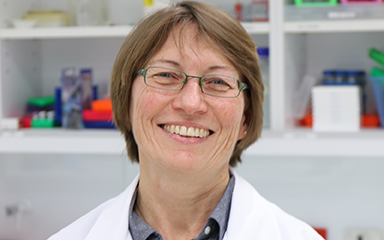Despite the best efforts of researchers and clinicians over the past fifty years, there has been little impact on the treatment of pancreatic cancer, one of the most lethal of cancers. Just under nine per cent of people survive five years after diagnosis. Pancreatic cancer occurs when abnormal cells within the pancreas grow in an uncontrolled way. The pancreas is a small gland that sits behind the stomach. It produces hormones, such as insulin, that control sugar levels in the blood. The pancreas also produces enzymes that help the body digest food.
WHAT IS PANCREATIC CANCER?
Risk factors
While the causes of pancreatic cancer are not fully understood, there are a number of factors associated with the risk of developing the disease including:
- tobacco smoking
- chronic inflammation of the pancreas – called pancreatitis, alcohol is an important risk factor
- certain inherited genetic conditions such as hereditary pancreatitis syndrome, Lynch Syndrome, hereditary atypical multiple mole melanoma syndrome, hereditary BRCA2-related breast and ovarian cancer and Peutz-Jeghers syndrome.
- long-term diabetes (Type 2)
- growing older is a risk factor, with the average age of diagnosis at 71
- Males are more likely to develop pancreatic cancer than females
Treatments
Treatment for pancreatic cancer depends on the stage of the disease, the severity of symptoms and the person’s general health. Treatment options can include surgery to remove part or all of the pancreas and nearby organs that may be affected, radiotherapy and/or chemotherapy, and targeted therapies to destroy cancer cells. Research is ongoing to find new ways to diagnose and treat different types of cancer.
Pancreatic cancer at the Perkins
Solid tumours such as pancreatic cancer form their own blood vessel supply within the tumour tissue. The blood vessels then provide oxygen and nutrients and promote cancer growth and metastatic spread, while also forming a barrier to keep our immune cells and anti-cancer drugs. There is a fundamental difference between the blood vessels in a tumour and normal tissue. In contrast to normal blood vessels, tumour blood vessels function very poorly which results in several obstacles for successful treatment. Current efforts attempt to eradicate tumour vessels to starve the cancer. Indeed, this treatment slows tumour growth, but a relapse is inevitable and the cancer grows back, often in a more aggressive form. Professor Ruth Ganss’s research aims to make tumour blood vessels more normal which then allows drugs and immune cells to reach deeper into the tumours and fight the cancer. The Cancer Microenvironment laboratory has contributed to a paradigm shift in cancer research by demonstrating that tumour blood vessels can indeed be “normalized”.
Cancer microenvironment laboratory
The goal of the Cancer Microenvironment team is to develop highly effective combination therapies which can make tumour blood vessels more normal – allowing anti-cancer drugs and immune cells to reach deeper into the tumour’s core and fight the cancer from within.


